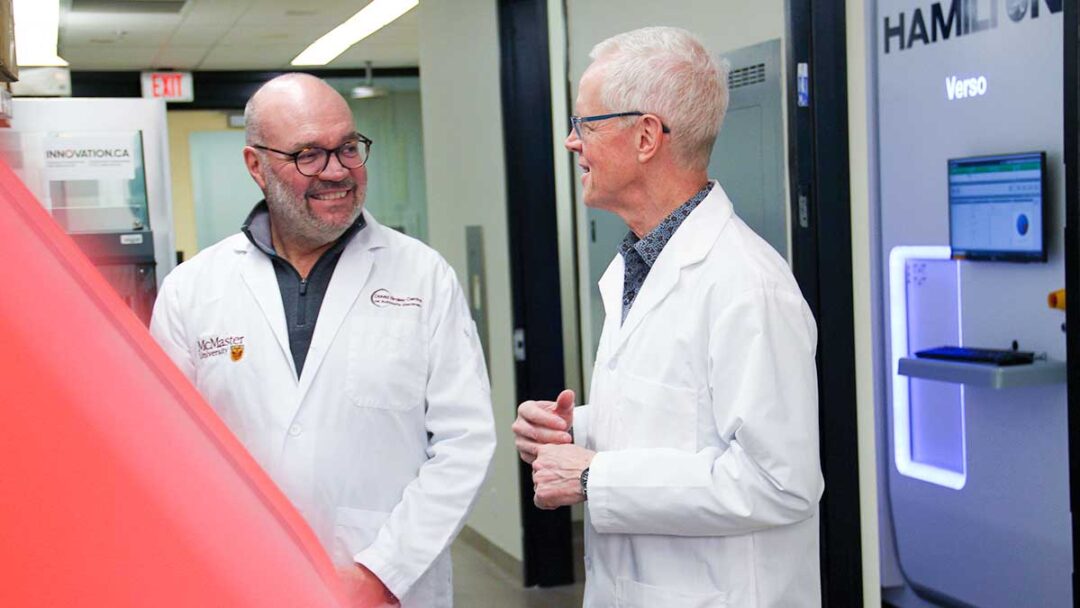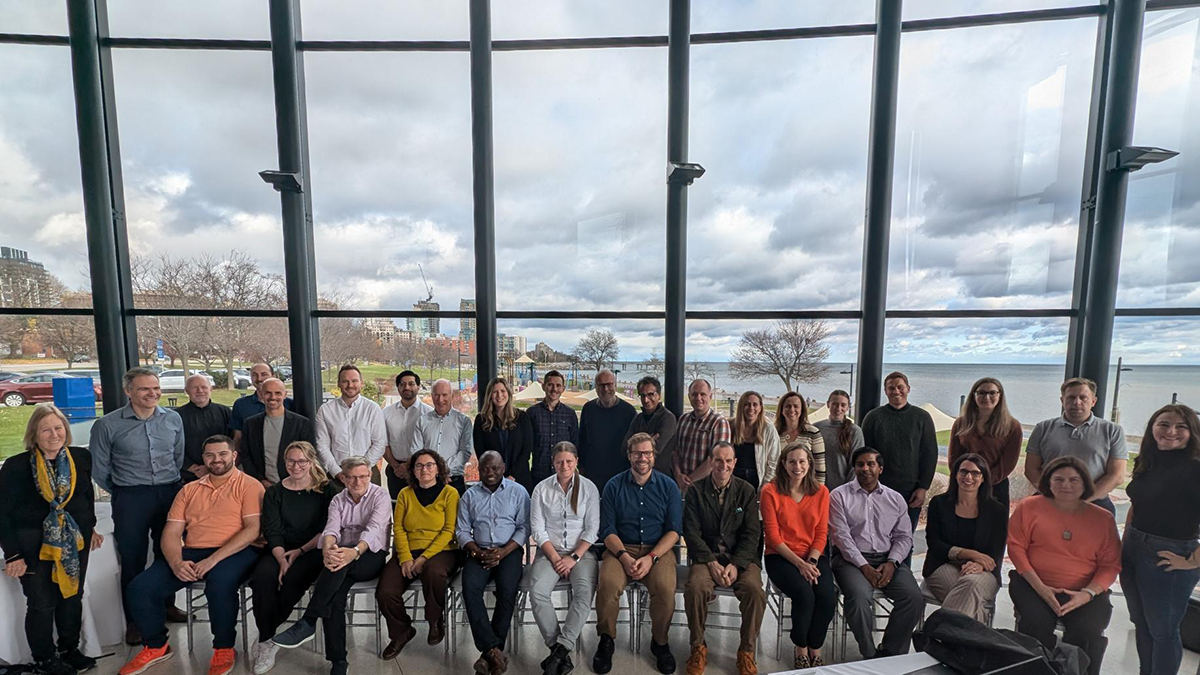McMaster and Kapoose Creek Bio set sights on new fungi-derived medicines in new $2.2M drug discovery partnership

Scouring acres of remote, coastal rainforest on Vancouver Island — and with the benefit of an off-grid research station — researchers at Kapoose Creek Bio are tapping into a vast reservoir of naturally growing fungi, including some previously undiscovered species. Together with McMaster University scientists, the BC-based biotech company is exploring the natural chemistry of these diverse fungi for possible medicinal activity.
The collaboration, part of Genome Canada’s Genomic Applications Partnership Program, is supported by more than $2 million in research funding committed collectively by Genome Canada, Kapoose Creek Bio, and McMaster.
Through the new partnership, Kapoose Creek Bio will leverage McMaster’s expertise and infrastructure to develop a new synthetic biology platform that will fast-track the discovery and development of new fungi-derived medicines.
“Fungi have been the source of some of the most effective medicines in history, including penicillin,” explains Eric Brown, a professor in McMaster’s Department of Biochemistry and Biomedical Sciences and CEO of Kapoose Creek Bio. “We are mining nature for new leads and bringing those leads into the laboratory.”
Brown and Kapoose Creek Bio are partnering with McMaster researcher Gerry Wright on the new synthetic biology technology, which will facilitate the large-scale production of any leads discovered by the company — something that has historically been a barrier to drug discovery research.
“There is so much amazing biodiversity in nature, but the quantities of medically relevant materials are rarely sufficient enough to support a drug discovery program,” says Wright, also a professor in McMaster’s Department of Biochemistry and Biomedical Sciences. “To get around this, we are engineering tame strains of lab-grown microbes that can reproduce in the lab the amazing genetic programs that we discover in the wild.”
On top of enabling and expediting drug discovery, Wright says that the new platform is environmentally conscious as well — instead of harvesting large quantities of fungi from the natural environment, researchers can now copy-and-paste genetic information from wild fungi into lab-friendly strains. He says the platform could eventually protect corals, sponges, plant life, and other sources of microbial natural products, too.
Already, the research team is working with what Brown describes as a “really exciting” lead compound, called KCB-100.
While Wright and Brown, both members of the Michael G. DeGroote Institute for Infectious Disease Research (IIDR), have long specialized in antibiotics and antimicrobial resistance, this first fungal compound moving through their new platform is not antimicrobial in nature; rather, it has activity that shows promise against neurological indications, spanning neurodegeneration to mental health.
“Much of the infectious disease research infrastructure that has been established at McMaster is actually therapy agnostic,” says Wright. “We use the tools at the IIDR to fight infectious disease, but all it really takes is someone with ambition — like the team has shown here — to start applying this infrastructure to other disease areas.”
Brown says that Kapoose Creek Bio is enthusiastic about the neuroactive properties of KCB-100, a fungal metabolite that was prioritized using the company’s “unEarth Rx” AI platform. Brown recalls the discovery of KCB-100’s neuroactive potential as “a real a-ha moment” for the team.
While the project is still in the preclinical optimization phase of drug development, Brown is optimistic that the partnership could lead to a breakthrough medicine. He also believes that the compound, coupled with Wright’s synthetic biology approaches, will establish a template for how other fungal molecules may be studied, paving way for a suite of future drug candidates.
“This is a flexible, scalable platform that can be applied to other areas of drug discovery,” he says. “It will allow us to test diverse fungal molecules at a scale and cost-effectiveness not previously possible, and allow us to do so right here in Canada.”
Collaborations & Partnerships, Dept. Biochem, Funding, Global Nexus, Michael G. DeGroote Institute for Infectious Disease ResearchRelated News
News Listing

McMaster University Library ➚
Health Sciences Library comes together with McMaster University Library
Collaborations & Partnerships
7 days ago

Department of Medicine ➚
Pain to progress: An impactful history of lupus research and care at McMaster
Collaborations & Partnerships, Education, Research
December 20, 2024

MIRA ➚
MIRA welcomes scholars from across the globe for landmark International Consensus Meeting on Wearables for Measuring Mobility in Aging Populations
Collaborations & Partnerships, Research
December 12, 2024
